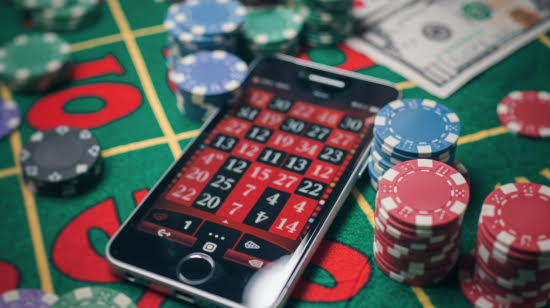
How to Play and Win: Strategies for Success
Winning is not merely about luck; it requires strategy, skill, and experience. Understanding how to play and win in any competitive environment, be it a game, sport, or business, is essential for achieving success. In this guide, we will break down the key components that will help you become a better player and ultimately win more often. For more strategies and insights, visit How to Play and Win at Online Lottery Games in Bangladesh https://plastechbrasil.com.br/.
Understanding the Game
The first step in learning how to play and win is to fully understand the game or competition you are participating in. This involves studying its rules, mechanics, and strategies. Whether it’s a board game, an online video game, or a sport, comprehending the underlying principles allows you to make informed decisions during play.
Preparing Mentally and Physically
Preparation goes beyond just understanding the rules. Mental and physical readiness can significantly influence your performance. For athletes, this might include physical conditioning, practice, and developing routines that enhance focus. For gamers, mental preparation could involve familiarizing yourself with the game environment and practicing skillsets that are critical for success.
Visualize Success
Visualization techniques can be beneficial in enhancing performance. Imagine yourself succeeding, whether it’s making the winning shot in basketball or achieving a high score in a video game. This mental rehearsal can boost confidence and reduce anxiety during actual competition.
Analyzing Opponents
Understanding your opponents is crucial when learning how to play and win. Observing their strategies and habits can help you identify their weaknesses and capitalize on them. Whether competing in a game or sport, gathering intelligence on opponents can inform your tactics, allowing you to adapt and adjust your gameplay accordingly.
Adapting to Change

Competitions are dynamic, and adaptability is key. Be prepared to adjust your strategies based on the flow of the game and your opponents’ actions. This flexibility can be the difference between victory and defeat, enabling you to take advantage of unexpected opportunities that may arise.
Mastering the Fundamentals
Every game or competition has fundamental skills that are essential for performing well. Invest time in mastering these basics before attempting advanced strategies. For instance, in sports, this could mean developing core athletic skills such as shooting, passing, or defending. In gaming, it might entail mastering character abilities or learning map layouts.
Regular Practice
Consistent practice is essential for honing your skills. The more you practice, the more instinctive your responses will become. Create a routine that allows you to work on fundamental skills regularly and track your progress over time. This ongoing development will enhance your overall performance during competitions.
Strategic Thinking and Planning
Merely knowing how to play is not enough; developing a winning strategy is crucial. This involves planning your moves ahead of time and thinking critically about the courses of action available to you. Consider all possible scenarios and outcomes before making a decision.
Setting Goals
Short-term and long-term goals will help focus your efforts. Setting specific, measurable, achievable, relevant, and time-bound (SMART) goals will provide direction and motivation. Achieving these goals, whether they are related to performance or skill development, can lead to a sense of accomplishment and propel you toward greater victories.
Collaboration and Team Dynamics
In team sports or multiplayer games, understanding how to work well with others is vital. Learn the strengths and weaknesses of your teammates, communicate effectively, and develop strategies that leverage your collective skills. Team synergy often leads to better performance and winning outcomes.

Building Trust and Relationships
Fostering trust and relationships within your team can create a positive environment, enabling efficient teamwork and collaboration. This rapport not only enhances performance but also makes the experience more enjoyable, which can further drive success in competition.
Learning from Defeats
Every player faces defeats, but the key to success is learning from these experiences. Analyze why you lost, what mistakes were made, and how similar outcomes can be avoided in the future. Embrace losses as lessons and use them as motivation to improve.
Feedback Loop
Seeking feedback from coaches, teammates, or peers can provide valuable insights into your performance. Create a healthy feedback loop that encourages constructive criticism and positive reinforcement. Utilizing this feedback can significantly improve your gameplay and strategy.
Staying Positive and Motivated
A positive mindset can greatly affect your performance in games and competitions. Stay motivated and focused on your goals by reminding yourself of your passion for the game. Celebrate small victories and progress along the way, as this can build momentum toward achieving larger goals.
Managing Stress and Pressure
Learning how to cope with stress and pressure is also vital for success. Techniques such as deep breathing, meditation, or even taking breaks can help maintain calmness and enhance focus during intense moments in competition. Finding what works best for you is an essential aspect of remaining resilient.
Conclusion
In conclusion, mastering the art of how to play and win requires a combination of preparation, strategy, skill development, and mental fortitude. By understanding the game, analyzing opponents, and remaining adaptable, you can significantly improve your chances of winning. With persistent practice, collaboration, and a positive mindset, victory is within reach. Embrace every experience, learn from your mistakes, and enjoy the journey of competitive play.

